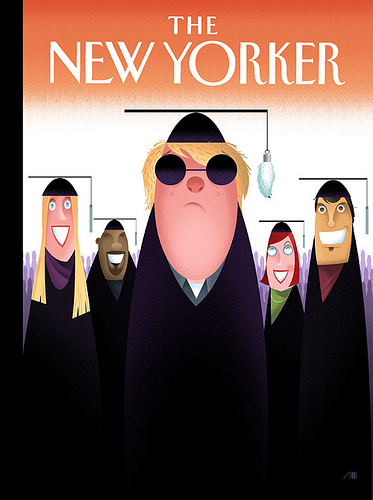ROBERTS I liked your line in The Drunkard’s Walk about lotteries: “What would you think of a system where one person wins a million dollars; for hundreds of thousands of people nothing happens; and one person dies a violent death.”
MLODINOW Would you participate?
ROBERTS Yes, would you participate? That was great.
MLODINOW Most people would, it turns out. But you can’t quite phrase it that way.
ROBERTS I thought, ’Well, you’re not going to read that line in many descriptions of lotteries.’ That’s just not the way the average professor of statistics would describe a lottery. But it’s so much more interesting than the average way a lottery is described. I thought, ’This is brilliant science writing. This person isn’t just copying or popularizing.’
MLODINOW That’s a creativity that comes into writing as well as science. Science research takes a lot of creativity and the ability to look at things from a different angle and I think writing does, too. I think one of the things that sets this book apart from other books on probability is that sort of thing; I looked at a lottery and didn’t just say ’Here are your chances of winning and look how small they are,’ but I think I looked at it from a unique, somewhat amusing, surprising angle. That’s where the work comes in writing the book, is to find those angles rather than just explaining things.
ROBERTS I think the average science writer would grasp that if you’re going to write about the lottery, you’re going to have to find some interesting stories, but I don’t think they’re going to be bold enough or creative enough to think of the way that I just said–the part I quoted. That’s kind of a writer who’s more sure of himself. You should be sure of yourself–you have all these credentials–you did all this stuff in science but I don’t think the average writer is that confident. You know, Malcolm Gladwell tries to do this sort of thing. He does these slightly counter-intuitive ideas but it’s less successful, I think.
MLODINOW An idea like that would have been hard for someone who isn’t trained in the field; someone who is trained in the field I think would have confidence, if they thought of that idea, to use it. Also, that’s the two areas of confidence you need. You need confidence in the field, and you also need confidence as a writer. You build the latter by writing. Sometimes I’ll write sections of the book or I’ll go on for a while in a somewhat absurd–I’m thinking–direction and I know enough now to know that it sometimes works and sometimes doesn’t work. I think I know enough now to tell the difference.
When I was first writing, I was being a bit more hesitant about getting a wild idea and going there, thinking it was going to be silly and I’m going to embarrass myself. Then I learned, well, it’s good to just do that and don’t worry if you waste a day or two in that direction; you can just cut it and keep going but it’s a good investment because sometimes it works and you get something really interesting. I also learned with time that I can tell the difference. If it really is silly and not working, I won’t embarrass myself by leaving it in the manuscript; I will notice it and cut it and not fret over the lost day or two and I’ll go on and write something else to take its place. Those are all lessons that you have to learn but it is interesting that you brought up the notion of confidence because I think that’s something that you do learn as you write. It’s really a dual lesson of confidence–that it’s okay to go ahead and take chances with the writing–and the letting go of the possible wasted time you’re going to have. So the confidence to know that you won’t embarrass yourself because if it’s really stupid, in the end you’ll cut it and also that you’re not going to fret over the wasted time are two lessons that I think you might not know your first time you’re writing a book. In letting go, you have to be naked and just let yourself go and not worry about what you’re saying and how it comes off.
ROBERTS And you know that you understand the subject. You know that there’s not going to be some other person out there who’s going to say, ’This is all wrong.’ That’s just not going to happen.
MLODINOW Right. You can make mistakes in details–everybody makes misstatements sometimes. There’s so much in a book that it’s hard not to have anything come about wrong. Even Stephen Hawking’s A Brief History of Time, the original, gave the wrong relation at one point between wave length and energy for photons. He knows the difference, but unless you’re a computer you do make errors, so another lesson you have to learn is not be too embarrassed if something does come out that is a detail that you get wrong. Obviously not an important concept you get wrong.
interview directory.

